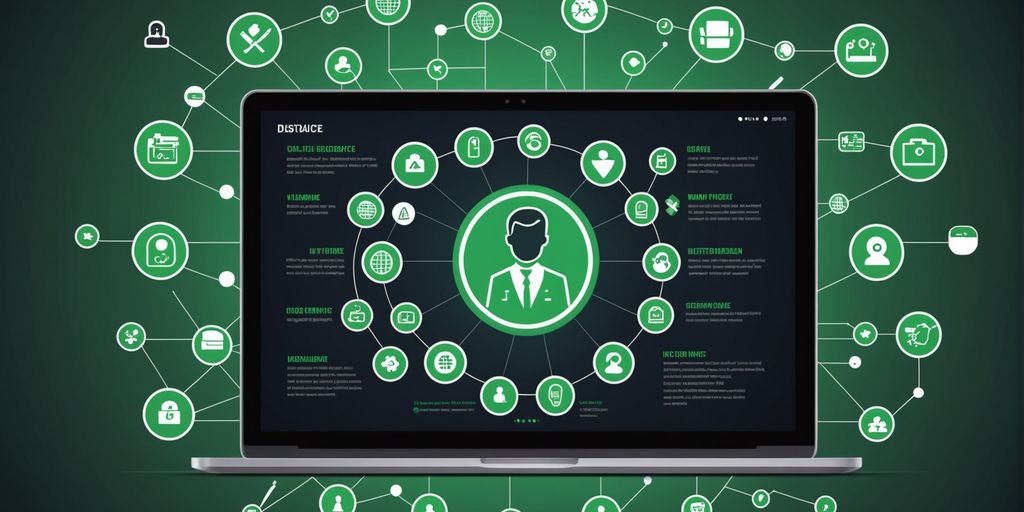July 28, 2025
In the digital age, human resources (HR) onboarding is changing rapidly, especially in sectors as critical as the vaccine industry. This digital transformation aims to simplify and improve the integration of new employees, while ensuring regulatory compliance and increasing talent retention. This article explores the importance of HR onboarding in the vaccine industry, the digital tools available, the benefits for new employees, and the challenges and prospects for the future.
The vaccine industry presents unique challenges when it comes to HR onboarding. New employees must quickly adapt to strict protocols and high quality standards. Effective integration is crucial to ensure employees are up and running from day one. In addition, the complexity of manufacturing processes and regulatory requirements require extensive and ongoing training.
Well-structured onboarding has a direct impact on talent retention. In a sector where specialized skills are rare, it is essential to retain employees as soon as they arrive. A successful onboarding process increases the satisfaction of newcomers and reduces the turnover rate. Digital onboarding also makes it possible to personalize the experience, making new employees more engaged and motivated.
Regulatory compliance is a significant aspect of onboarding in the vaccine industry. New employees should be trained in Good Manufacturing Practices (GMP) and current regulations. Structured and documented onboarding ensures that each employee understands and respects the standards, thus minimizing the risks of non-compliance. This is particularly important in a sector where mistakes can have serious consequences for public health.

Talent management platforms have become essential for HR onboarding. They make it possible to centralize all the information necessary for new employees, thus facilitating their integration. These platforms offer an overview of skills and training needs., which is crucial for a successful integration. In addition, they make it possible to monitor the progress of employees and to adjust integration programs accordingly.
E-learning and online training are essential tools in the digital age. They offer unparalleled flexibility, allowing new employees to take training at their own pace. Technologies allow the creation of integration programs that can be customized according to the needs of the employer. For example, it is possible to use interactive modules to make learning more engaging.
Performance monitoring and evaluation are facilitated by digital tools. With automated dashboards and reports, HR managers can easily assess the effectiveness of onboarding programs. The use of digital platforms, virtual reality and other interactive tools has made it possible to deploy innovative reception programs, improving the experience for new employees. It also makes it possible to quickly identify areas in need of improvement and to adjust strategies accordingly.
In the vaccine industry, onboarding is crucial to ensure the conformity to strict standards and to quickly integrate new employees. A vaccine manufacturer decided to digitize its onboarding process to improve efficiency and reduce costs. The main objective was to create a more fluid and personalized integration journey, while complying with regulatory requirements.
To achieve these goals, several digital tools have been deployed:
The results of this digitalization have been very positive. The time required to train a new employee has been reduced by 50%, and errors due to incomplete training have been reduced by 95%. Additionally, talent retention has increased, leading to lower recruitment costs. In short, this initiative has not only boosted efficiency of the onboarding process, but also ensured better compliance with strict vaccine industry standards.

La digitalization onboarding processes significantly reduce the stress and workload of new employees. By automating administrative tasks and providing accessible online resources, employees can focus on onboarding and training. It also helps to reduce human errors and improve overall efficiency.
Thanks to thedigital integration, new employees have immediate and easy access to all the information they need to get off to a good start in their new role. Digital platforms centralize documents, procedures, and training, making it easier to find and use resources. This contributes to faster skills development and a better understanding of expectations and responsibilities.
Digital tools make it possible to personalize the integration process according to the specific needs of each employee. By using talent management platforms and e-learning modules, it is possible to adapt training content and onboarding activities to individual skills and goals. This tailor-made approach promotes a more harmonious integration and increases productivity from the very first days.
By adopting digital onboarding solutions, businesses can not only improve the experience of new employees, but also optimize their internal processes and strengthen their competitiveness in the market.

One of the main challenges ofDigital onboarding is resistance to change. Employees may be reluctant to adopt new technology, especially if they are used to traditional methods. To overcome this resistance, it is crucial to clearly communicate the benefits ofOnboarding 2.0 and to provide adequate support during the transition.
The digitalization of HR onboarding involves the collection and storage of a lot of sensitive data. Ensuring the security of this information is essential to avoid data breaches. Businesses need to implement robust security measures and comply with current regulations to protect the data of new employees.
Another challenge is the adaptation of training content so that it is effective in a digital format. Training modules should be interactive and engaging to maintain the attention of new collaborators. Additionally, it is important to customize onboarding journeys to meet the specific needs of each employee, which may require additional resources.
Digitizing HR onboarding can revolutionize the onboarding process, but it requires careful planning and proactive management of challenges to be truly effective.

The future of HR onboarding in the vaccine industry will be marked by technological innovations. Artificial intelligence and virtual reality are already transforming integration processes. These technologies make it possible to create more immersive and personalized integration paths, thus facilitating the adaptation of new collaborators. For example, virtual reality simulations can be used to train employees in good manufacturing practices (GMP) In thepharmaceutical industry.
The expectations of new employees are changing rapidly. They are now looking for onboarding processes that are not only effective but also engaging. Companies in the health sector must therefore adapt their methods to meet these new requirements. The use of talent management platforms and e-learning is becoming essential to offer an enriching and interactive integration experience.
The role of managers is crucial in the success of digital onboarding. They need to be trained to use the new digital tools and to proactively support new employees. Good communication and regular follow-up are essential to ensure a successful integration. Managers must also be able to personalize the integration process according to the specific needs of each employee, especially in regulated sectors such aschemical industry And thecosmetic industry.
Digital onboarding is not limited to the use of new technologies. Above all, it is about creating a human and personalized experience for each new employee.
In conclusion, the future of HR onboarding in the vaccine industry depends on the adoption of innovative technologies, the evolution of employee expectations and the central role of managers in the integration process.
The future of HR onboarding in the vaccine industry is promising. At Sinfony, we offer innovative solutions to ensure that your employees are well-trained and ready for challenges. Learn how our onboarding programs can transform your business. To find out more, visit our website now.
HR onboarding in the digital age represents a real revolution, especially in sectors as critical as the vaccine industry. Thanks to advanced digital tools and innovative training methods, companies can now integrate their new employees in a faster, more effective and less stressful way. This transformation is not limited to simply modernizing processes, but it also contributes to better regulatory compliance and lower costs. By adopting these new approaches, pharmaceutical companies can not only improve their performance, but also ensure a more harmonious and productive work environment. The future of HR onboarding is undeniably digital, and the benefits it brings are already visible today.
Onboarding is essential because it allows new employees to quickly understand the strict procedures and regulations in the industry, thus ensuring the quality and safety of the vaccines produced.
Challenges include regulatory complexity, the need for extensive training, and managing compliance with safety and quality standards.
Digital tools, such as talent management platforms and online training, allow for faster and more effective onboarding of new employees by offering them immediate access to appropriate resources and training.
Digitalization reduces stress and workload, offers quick access to information and allows the integration process to be customized according to individual needs.
Key obstacles include resistance to change, concerns about data security, and the need to adapt training content to digital formats.
Prospects include the adoption of new technologies, the evolution of employee expectations, and an increased role of managers in the integration process.
Des formations conçues par des experts métier, régulièrement mises à jour pour coller aux exigences terrain. Découvrez nos modules les plus suivis et les mieux notés par les professionnels.

Formation complète sur les Bonnes Pratiques de Fabrication (BPF) adaptée à votre profil professionnel dans l'industrie pharmaceutique et vétérinaire.

Maîtriser les techniques et les procédures essentielles.

Les procédures essentielles d'hygiène et de sécurité pour le personnel...